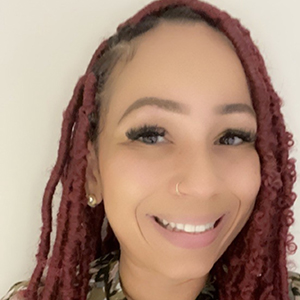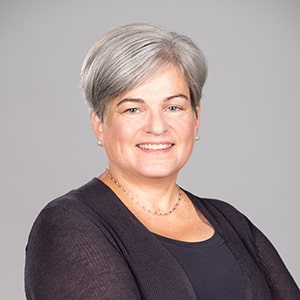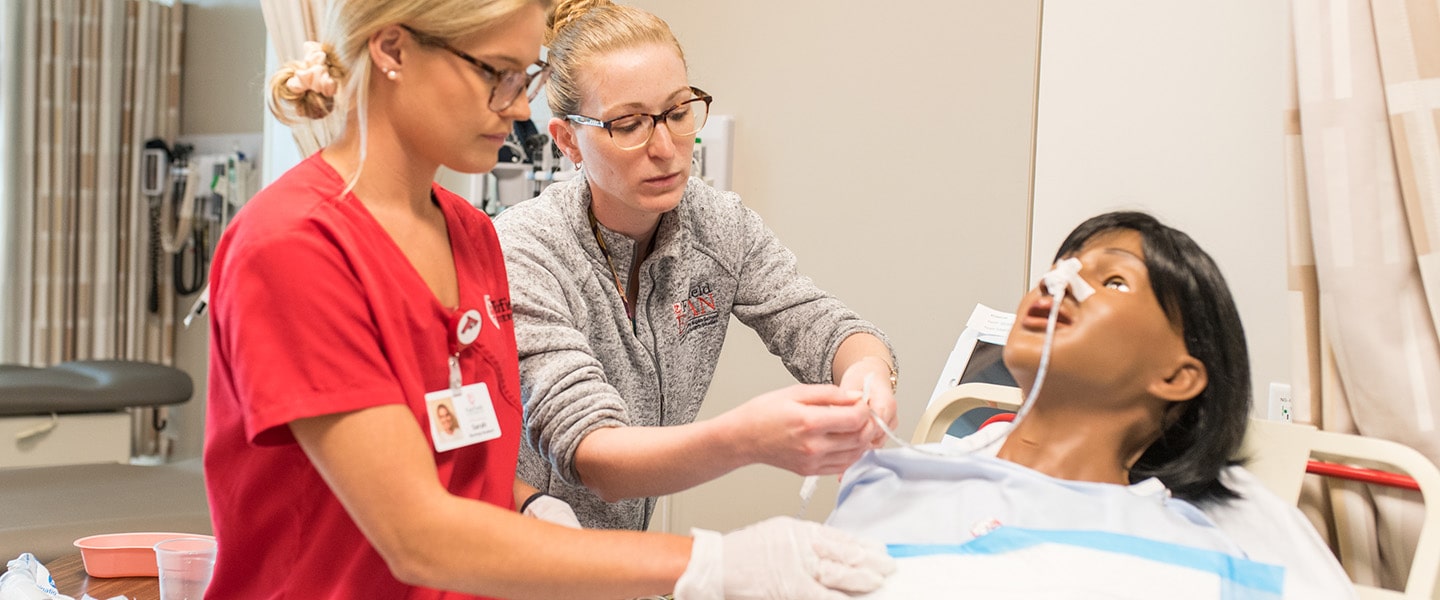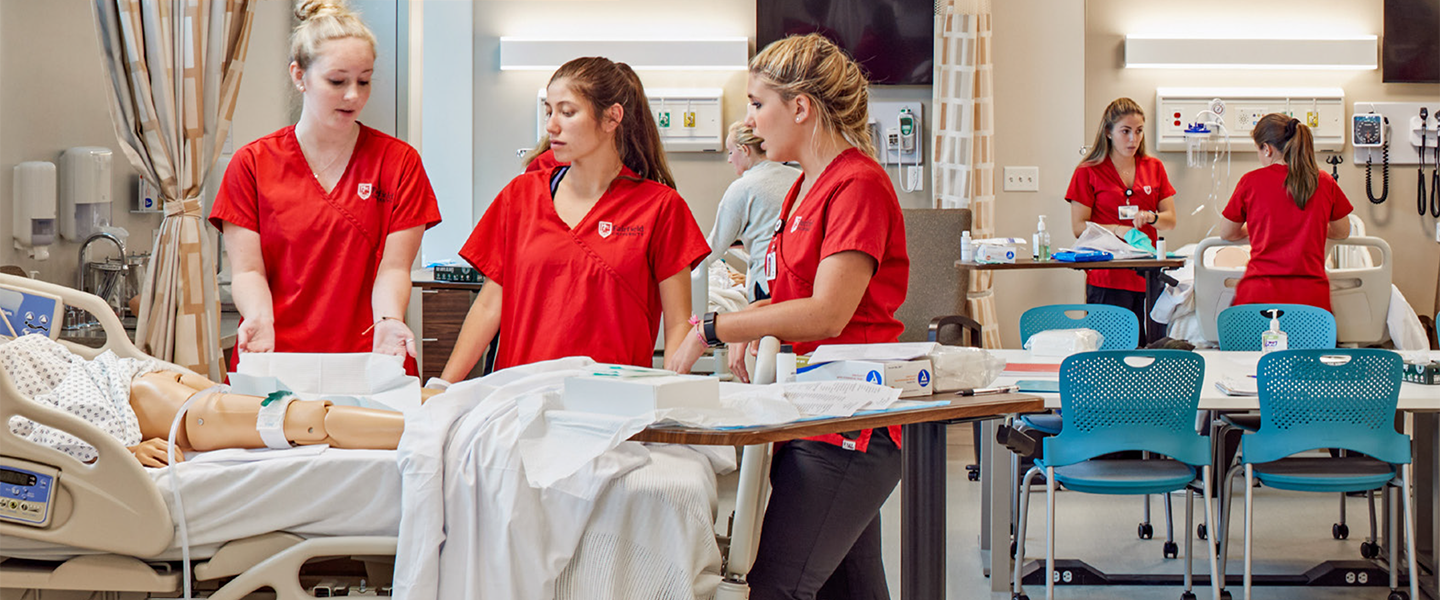On This Page
Where Experience Becomes Expertise
Fairfield University’s Doctor of Nursing Practice (DNP) for Psychiatric Mental Health Nurse Practitioners (PMHNP) is a clinically focused doctoral degree. The PMHNP is the only advanced practice specialty that prepares nurses to assess, diagnose and treat acute and chronic psychiatric disorders in children, adolescents, adults and the elderly. Students develop competency in leading therapeutic groups, crisis and case management, prescribing psychotropic medications and conducting psychotherapy. This program is designed to meet the national competencies for PMHNP set forth by the National Organization of Nurse Practitioner Faculties (NONPF). Students learn to evaluate and apply existing evidence to improve practice outcomes. Taught as a cohort program, students are educated in the fundamental skills necessary to make a difference in healthcare: population-level healthcare, organizational systems, leadership, business management, clinical scholarship, information technology, and policy-making. With this knowledge, DNP PMHNP graduates are prepared for leadership roles in a variety of settings some of which include academia, inpatient psychiatry, psychiatric emergency rooms, outpatient community health centers, integrated behavioral health, home care, substance abuse, skilled and extended care nursing facilities, juvenile and criminal justice, emergency or crisis, intensive outpatient programs, partial hospitals, federal facilities, and private practice.
The Psychiatric Mental Health Nurse Practitioner (PMHNP) Program at Fairfield University Egan School of Nursing and Health Studies is fully accredited by the Commission on Collegiate Nursing Education (CCNE). This program was the first PMHNP program in Connecticut and one of the first in the U.S.
Sneak Peek | Fairfield University School of Nursing and Health Studies
Fairfield University’s Marion Peckham Egan School of Nursing Simulation Center
Fairfield Egan Fast Facts
Top 100
- U.S. News & World Report
Top 2
- U.S. News & World Report
Top 5%
#1
Philosophy of the Psychiatric Nurse Practitioner Program
The Marion Peckham Egan School of Nursing and Health Studies PMHNP program is based on a holistic paradigm of healing. In a holistic model, symptoms are seen as a form of communication and are useful for understanding the meaning of the dysregulation and disharmony that often occur for patients. Both relationship and resilience are overarching pantheoretical concepts that apply to all approaches of care and practice settings. Shared decision making, evidence-based practice, reflection, and social justice are foundational to the curriculum. The Egan School faculty have woven trauma and resilience and palliative care competencies throughout the curriculum. Our students receive psychotherapy and advanced trauma training with an emphasis on serving vulnerable populations and respecting the dignity of every person.
Requirements & Curriculum
Required Courses
| Epidemiology and Biostatistics |
| Advanced Healthcare Policy |
| Research Methods for Evidenced-Based Practice |
| Advanced Nursing Roles and Reflective Practice |
| Population Health |
| Research Translation for Clinical Practice |
| Finance and Quality Management in Healthcare Organizations |
| Information Technology for Healthcare Improvement |
| Leadership and Interprofessional Collaboration |
| DNP Immersion |
| DNP Seminar I |
| DNP Seminar II |
| Advanced Health Assessment |
| Advanced Physiology and Pathophysiology |
| Advanced Pharmacology |
| Psychopathology |
| Mental Health Nursing of Children and Adolescents |
| Mental Health Nursing of Individuals Across the Lifespan |
| Foundational Clinical Skills for Advanced Psychiatric Nursing Practice |
| Mental Health Nursing of Groups and Families Across the Lifespan |
| Primary Mental Health Nursing of At-Risk Populations Across the Lifespan |
| Psychopharmacology |
| Practicum I: PMHNP |
| Practicum II: PMHNP |
| Practicum III: PMHNP |
A detailed list of course requirements, offerings, and more can be viewed in the University’s course catalog.
Egan Admission
Applications are considered on a rolling basis for classes until July 1.
BSN applicants for the DNP at Fairfield must hold a baccalaureate degree in nursing from a regionally accredited college or university (or the international equivalent) with a grade point average of 3.0 or higher overall and in the nursing major. RN applicants who have a non-nursing bachelor's degree will be considered on an individual basis and may be required to complete select prerequisites to be eligible for admission to the DNP program; however, RN applicants who have a non-nursing bachelor's degree are not eligible for the Nurse Anesthesia track.
Stag Spotlight

Ashley Neal
Class of '22
What were your reasons for choosing Fairfield University for your advanced degree?
I chose Fairfield University for my degree for a few reasons, the first being that they are one of the only programs deeply rooted in the Jesuit spirit and traditions in my specialty and geographic area, as well as the fact that they are extremely passionate about developing culturally and intellectually competent practitioners.
What have you liked about your Fairfield education?
Throughout my education at Fairfield, and even in life post-graduation I have always felt supported by all my teachers in every single course. The strong leadership and mentorship have been unmatched, and their support has been unwavering. Being in a full time DNP program as a mother of three has been challenging, however, the faculty was always encouraging and understanding, helping to make the seemingly impossible, possible.
What would you tell someone considering an advanced degree at Fairfield?
I would tell anyone considering an advanced degree at Fairfield to first, consider their commitment to the program and second, to not second guess a “yes” decision. The education that you will receive as a Fairfield student will more than prepare you for whatever field you desire to get into, and I personally believe that you will be a cut above the rest due to the many resources and competence of your teachers.
How has working toward your advanced degree at Fairfield affected your life?
Being a full-time student in the DNP-PMHNP program while parenting three children and working full time nights was not easy and is definitely a road less traveled. The DNP project consumed my life for the last year and a half of the program, with many frustrating and at times, sleepless nights. Tears have been shed, and I’ve felt my spirit break. However, I finished, with a 3.8 GPA! This experience has taught me that you must trust the process, learn to accept constructive criticism, and to always work hard but be kind to yourself. I literally can do anything I put my mind and soul into, and that attitude combined with supportive faculty constantly cheering me on has given me a clearer perspective and brighter outlook on life moving forward. There is nothing that I don’t feel prepared to take on and I am appreciative of my experiences and insights gained from my education at Fairfield.
More About Doctor of Nursing Practice Psychiatric Mental Health Nurse Practitioner
Egan Newsletter
Learn more about what our faculty, students, and alumni are doing, as well as stay up-to-date on our rankings and accolades, programs, and more.
Diversity and Inclusive Excellence

As a Jesuit, Catholic university, Fairfield is dedicated to diversity and inclusion; to radical hospitality in service of racial, social, and economic justice.
Career & Professional Opportunities
Upon completion of the Fairfield University DNP program, graduates will possess the following competencies:
- Independently provide culturally sensitive and evidence-based care to individuals and populations in a defined area of advanced nursing practice.
- Demonstrate critical thinking at the highest level of practice and accountability in the management of healthcare systems, considering ethical, legal, and socially just patient-centered care.
- Translate research into practice through critique of existing evidence, evaluation of outcomes, and implementation of projects that contribute to the development of best practices.
- Integrate science and theory from nursing and related disciplines within a reflective practice framework to inform clinical judgments, resolve dilemmas in healthcare, and serve as a patient care advocate.
- Evaluate patient, population, and healthcare system outcomes using fiscal analysis and cost-effective strategies to achieve quality improvement.
- Analyze the use of healthcare information systems and patient care technology to assure quality healthcare outcomes.
- Lead collaborative interprofessional relationships and partnerships to transform healthcare delivery systems and improve health.
- Assume a leadership role in the analysis, development, implementation, and evaluation of policies to improve healthcare delivery and outcomes at the local, regional, national, and international levels.
DNP graduates will be prepared to be practice leaders in a variety of roles, including:
- Quality management executives in healthcare organizations
- Advanced practice caregivers in acute, community, and long-term care settings
- Directors of clinical programs
- Faculty responsible for clinical program delivery and teaching
Egan Update
We invite you to view the Egan Update, a year in review of Marion Peckham Egan School of Nursing & Health Studies news.
Faculty & Staff
Fairfield University’s Egan School boasts experienced faculty who inspire students to become leaders across social and healthcare environments. These students are actively engaged with faculty in practice, policy, scholarship, and service.
Frequently Asked Questions
The Doctor of Nursing Practice is a practice-focused doctorate comparable to advanced clinical degrees in other health disciplines such as Medical Doctor (MD), Doctor of Pharmacy (PharmD), Doctor of Public Health (DrPH), and Doctor of Physical Therapy (DPT). The degree represents the highest academic preparation for nursing practice, focusing on expanded scientific knowledge related to providing comprehensive direct care across all settings. Grounded in clinical practice, the DNP moves the focus of advanced practice nursing from the level of the individual patient to the population level by using a cross-population perspective to assess, manage, and evaluate common problems.
According to the American Association of Colleges of Nursing (AACN), safe nursing practice in today's increasingly complex health care system requires improved translation of scientific evidence into practice. With a DNP, you'll be able to assume a leadership role in an increasingly complex healthcare system during this critical era of healthcare reform.
The future of nursing rides on the DNP, and the shift in the industry is occurring right now. Members of AACN voted in 2004 to support advanced practice nursing at the doctoral level. This means that the DNP is the preferred degree for students wishing to be a nurse practitioner (NP), clinical nurse specialist (CNS), nurse midwife (CNM), or nurse anesthetist (CRNA); it will soon be required in some areas of advanced practice such as nurse anesthesia. For more information on the DNP, visit AACN.
The DNP is the preferred degree for advanced practice nursing (AACN, 2004). While programs are still available at the master's level, the DNP is expected to become the standard in the nursing practice.
The primary difference between the two is that a PhD is research-focused and the DNP is practice-focused. The PhD is specifically designed to teach students how to conduct original investigation that advances the knowledge of a discipline. In contrast, a DNP is comparable to clinical doctorates in other health disciplines such as pharmacy, physical therapy, and medicine. DNP students focus on advanced practice areas of specialization, acquiring a population perspective in addressing common patient problems within a specialty. DNP students complete a DNP Project that applies existing knowledge to address a clinical problem. The DNP Project results in a publishable paper that demonstrates the effectiveness of a clinical innovation on patient outcomes.
Fairfield University offers:
- Personalized attention & strong faculty-student mentorship opportunities
- A rigorous, experiential, and inspirational academic experience
- A reputation for graduating highly skilled nurse practitioners
- Stellar on-site technological resources
- A state-of-the-art simulation laboratory
- Exceptional media resources available onsite and remotely
- In keeping with our Jesuit mission, an emphasis on the ethical, legal, and socially-just implications of patient-centered care
We accept applications for family or psychiatric nurse practitioner specialties as well as nurse midwifery and nurse anesthetists.
The National Organization of Nurse Practitioner Faculties is responsible for developing the nurse practitioner competencies. This is true for both MSN and DNP preparation.
Upon completing the program at Fairfield University, a certified Psychiatric Nurse Practitioner can work with clients across the lifespan and in all clinical settings including acute care, community clinic, Federally Qualified Health Centers, corrections facilities, academic health centers, and private practice.
Students can transfer up to 6 core credits if the courses are similar. Evaluation of transfer credits are approved by the Associate Dean for Graduate Studies.
BSNs who pursue the DNP on a full-time basis will take 3 years; 4 years if they do so part-time. The approximate cost is $70-75,000 for the program, depending on the tuition rate per credit which could change slightly over the course of those years.
Yes, many of our students attend school part-time while working full-time; we have both full-time and part-time curricular plans available.
View the Fairfield's Egan School of Nursing graduate admission requirements.
The GRE exam is not required for the Nurse Practitioner or Nurse Anesthesia Tracks. For BSN applicants that have earned a GPA below 3.0., or MSN applicants that have earned a GPA below 3.2, GRE scores may strengthen your application by demonstrating your ability to achieve the academic standards required at the doctoral level.
The Egan School has developed a special program allowing certified Family Nurse Practitioners to complete all required didactic and clinical coursework as well as DNP coursework as full-time students in 2 years and as part-time students in 3 years.
Call or email Dr. Karen Corcoran, karen.corcoran@fairfield.edu or (203) 254-4000, ext. 2708 for more information.






